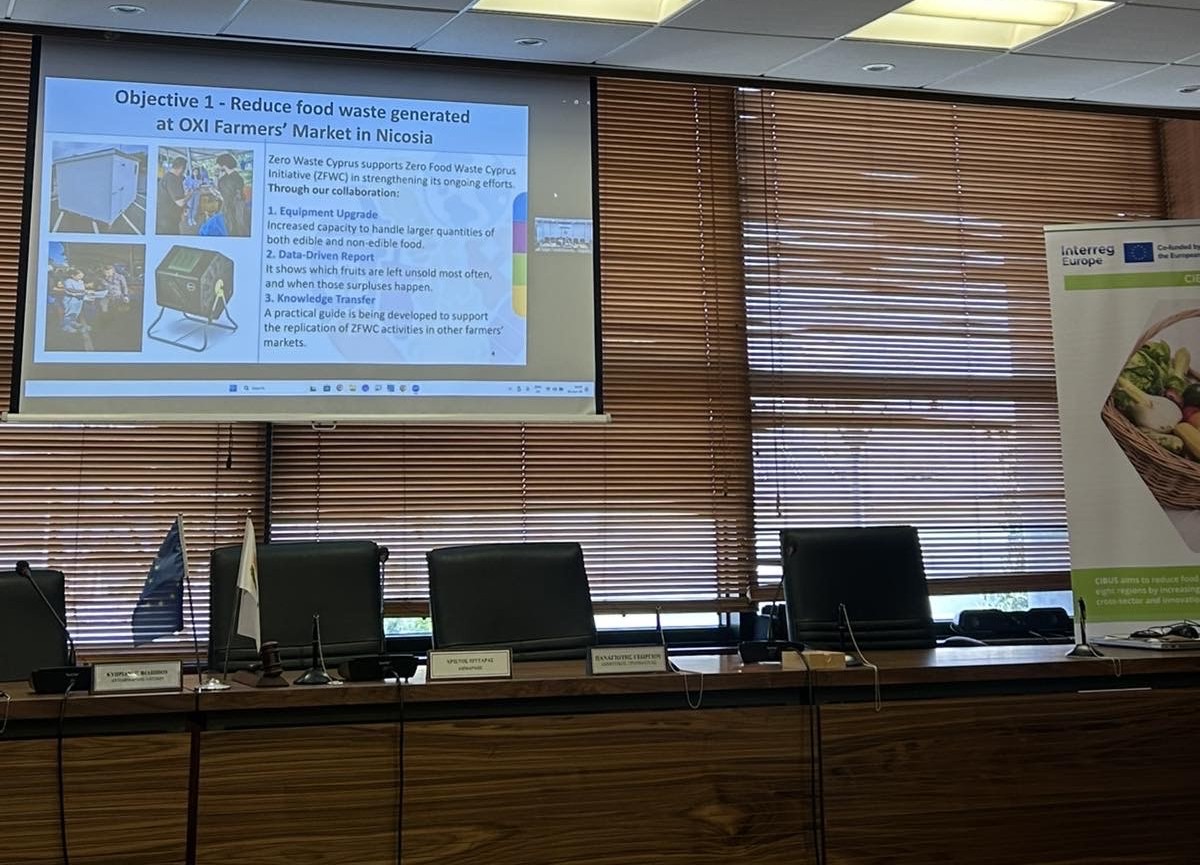On June 4, 2025, the LIFE-IP Zero Waste Cyprus project team participated in the 3rd Partnership Meeting of the European Project CIBUS, held in Nicosia. The meeting served as a valuable platform for dialogue and collaboration, focusing on initiatives implemented in Cyprus to reduce food waste.
The event was attended by representatives of the CIBUS project partnership, as well as stakeholders from Cyprus’ public and private sectors, academia, civil society and the general public.
The CIBUS Project (https://www.interregeurope.eu/cibus), implemented under the Interreg Europe 2021-2027 programme, fosters transnational cooperation among eight European regions with the aim of developing effective policies for food waste reduction. Through collaborative platforms, data utilization, and targeted prevention actions, the project aspires to contribute to the achievement of Goal 12.3 of the 2030 Agenda for Sustainable Development.
LIFE-IP Zero Waste Cyprus participated online and presented its activities directly related to the meeting’s theme. Specifically, the team highlighted its collaboration with the Zero Waste Alliance Cyprus, aiming to reduce fruit and vegetable waste at the OXI Farmers’ Market, promote the FOODCONNECT food donation platform and raise public awareness. Beyond this partnership, ongoing efforts were also presented for implementing new pilot interventions in additional farmers’ markets across Cyprus, in collaboration with local authorities, to further reduce the waste of edible fruits and vegetables. In addition to these pilots, various communication actions under the project were showcased, targeting both stakeholder training and public awareness. These include:
-
The creation of the recipe booklet “New Meals from Leftovers”, developed in collaboration with the Cyprus Chefs Association, aimed at reducing household food waste.
-
The Food Donation Procedures Guide, prepared in collaboration with the Health Services of the Ministry of Health, encouraging surplus food donations from catering, hotel, and hospitality businesses (HoReCa sector).
Alongside LIFE-IP Zero Waste Cyprus’ presentation, participants were also briefed by representatives of the Department of Environment on the role of the EU Platform on Food Losses and Food Waste, current European policies, national strategies, and actions already implemented by the Department in this area.
The presentations by other participants proved especially valuable, offering insights and practical solutions for food waste reduction. Notably, Ms. Sara Mariza Vrionidi, representing the NGO Friends of the Earth, presented European best practices for food waste reduction, providing useful material for adaptation and implementation in Cyprus. Dr. Stavros Parlaris, Associate Professor at Frederick University’s Department of Psychology and Social Sciences, shared results and challenges from the Save Our Food pilot program, which ran from 2021 to 2024 in collaboration with the Municipality of Aglantzia. As part of this program, municipal staff collected food portions from local businesses—such as bakeries, grills, and restaurants—and distributed them to vulnerable social groups. Mr. Andreas Agrotis, CEO of Amalthia Trading Nicosia Ltd, presented the Quasimodo Ugly Fruit & Veggies product line, which utilizes imperfect fruits and vegetables that failed to sell, converting them into jams, sauces, soups, and frozen peppers. Finally, Mr. Panayiotis Philippou, CEO of FoodFlow, introduced a digital tool that enables HoReCa businesses to effectively monitor and manage food waste.
During the meeting, key challenges in the food donation process were highlighted, such as limited participation by stakeholders due to concerns about food safety, as well as the need for fair distribution criteria for vulnerable groups. The importance of state support through targeted incentives was emphasized to increase stakeholder engagement, along with the vital role of collaboration between the public sector, businesses, and NGOs. Additionally, participants stressed the need to strengthen education and awareness programs, particularly targeting young people, who play a driving role in the transition to more sustainable and responsible food systems.
The participation of LIFE-IP Zero Waste Cyprus in this meeting was a valuable opportunity to present its actions and to acquire expertise and useful information, which will be utilized in the planning of its future interventions.


